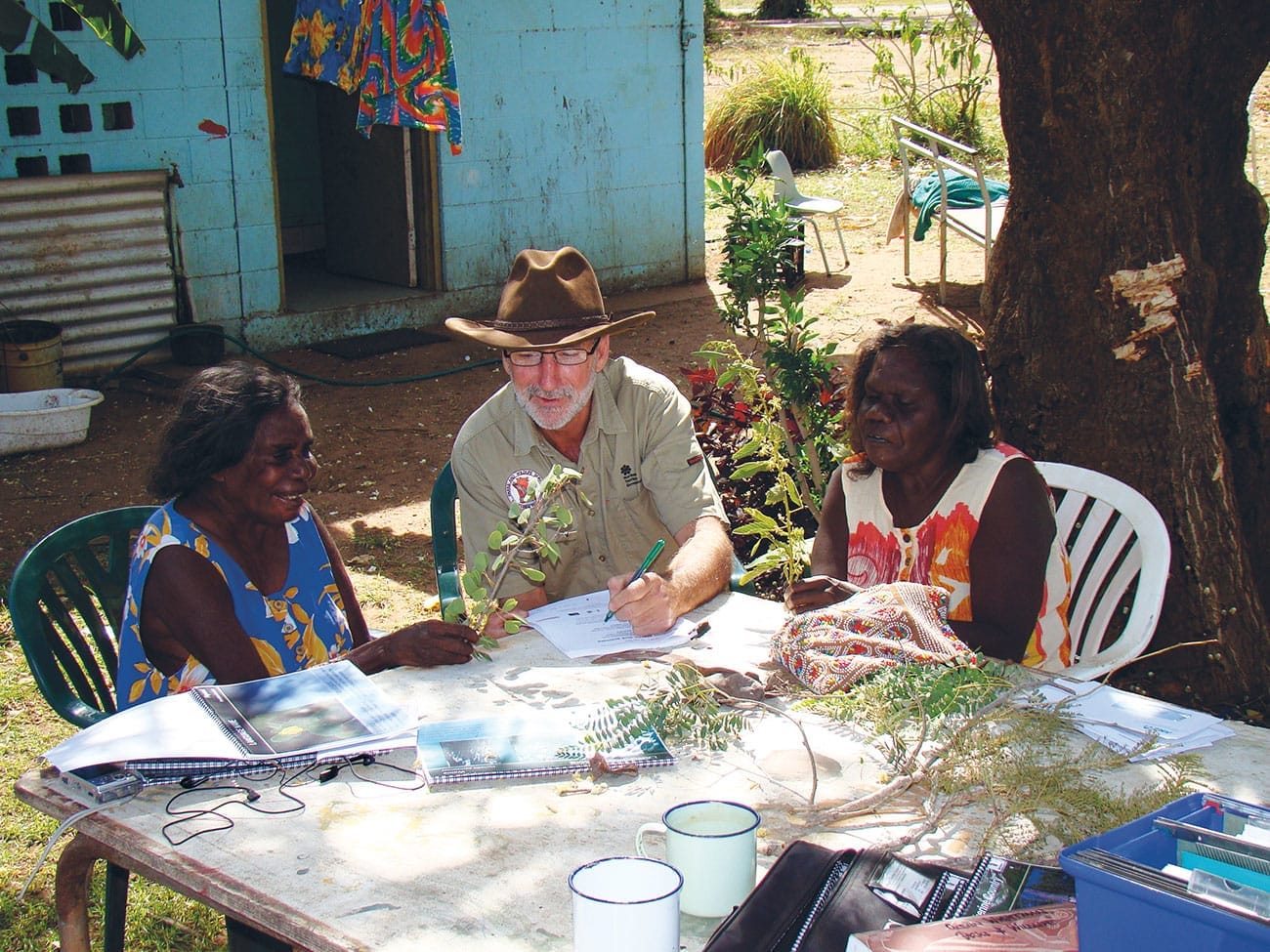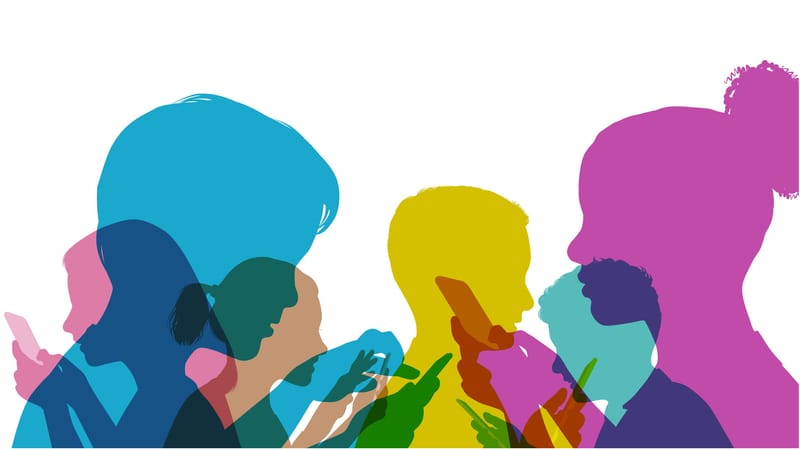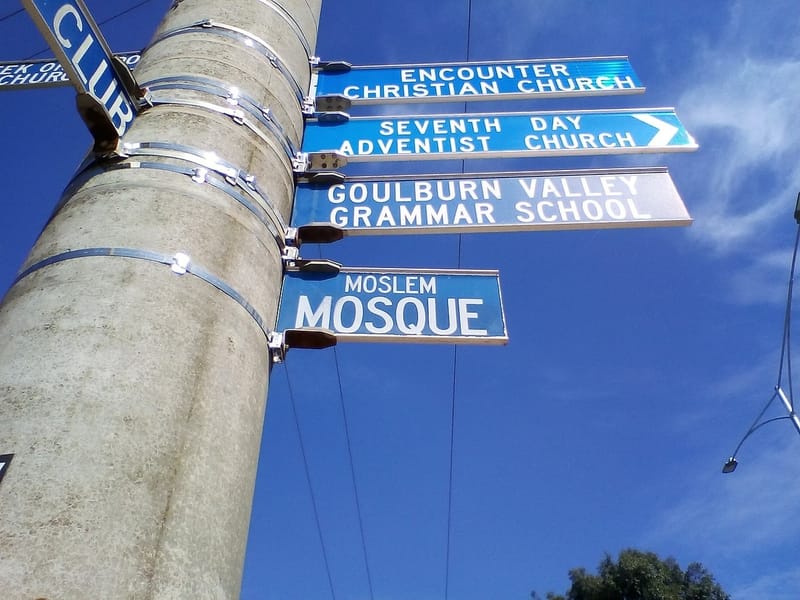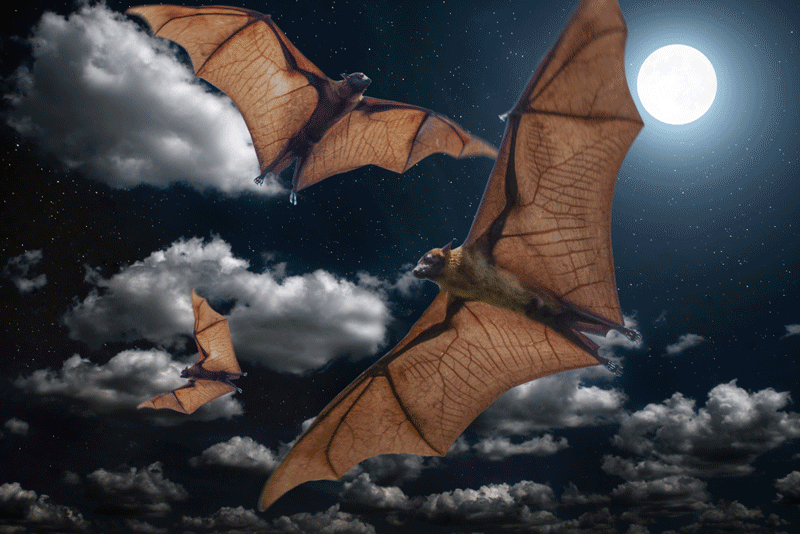
In summary:
- 90 per cent of Indigenous languages are ‘critically endangered’.
- Glenn Wightman, an ethnobiologist with the NT Department of Environment and Natural Resources is working with Elders to bring this country’s language diversity back.
- Wightman's most recent works show the urgency of ethnobiology in securing the vital link between Indigenous people and the natural world, told through language.
- The loss of language has profound implications ranging from the loss of identity and wellbeing to that of cumulative knowledge and culture.
- Wightman’s work was recognised with a Public Service Medal in 2011 for the maintenance of NT Aboriginal language and culture.
A language is said to become extinct when its last native speaker dies. Often that final breath also draws into death the age-old identity ascribed by countless generations of Indigenous people to their natural world – its plants, animals and landscape.
In the words of the late Spider Banjo, an Elder of the Malgnin people in the Northern Territory’s midwest: “Them dead men been stealing all the names of plants and animals.”
Almost half of the world’s 6900 languages are currently endangered, but it’s Australia that has the worst track record of linguistic attrition, with 90 per cent of Indigenous languages ‘critically endangered’.
Reviving Aboriginal language diversity
Working with Elders to bring this country’s language diversity back from the brink is Monash alumnus Glenn Wightman PSM, an ethnobiologist with the Northern Territory Department of Environment and Natural Resources.
Since completing a Bachelor of Science at Monash in 1982, Wightman has recorded, and consequently preserved, 48 Aboriginal languages in as many books, in collaboration with 252 Indigenous ‘countrymen’ as co-authors.
"Loss of language and the knowledge it contains has serious social, biological, cultural and heritage outcomes for all people, but especially for future generations of Aboriginal people."
The most recent of these works, Ngandi and Ngalakgan plants and animals: biocultural knowledge of flora and fauna from the Rose, Wilton, Roper and Phelp rivers, north Australia published this year, testifies to the urgency of ethnobiology in securing the vital link between Indigenous people and the natural world, told through language across the Northern Territory’s Top End and Western Australia’s Kimberley region.
From 2017 to 2019, Wightman worked with Ngandi Elder Mrs C.W. Daniels, as well as other Elders and their families, to help record the threatened Ngandi language that originated from the remote Ngukurr community on the banks of the Roper River in southern Arnhem Land. (Aboriginal convention dictates that a person’s first name cannot be spoken or published for a period of mourning following their death.)
“Mrs C.W. Daniels was the last fluent speaker of the Ngandi language, and she wanted to record her own knowledge and her ancestors’ knowledge before she died,” Wightman says.
In the months before her death, Daniels worked with Wightman to restore some of the knowledge gaps in the Ngandi native tongue that would otherwise have been lost forever, including knowledge of plants, animals, country, people and place embedded in the language.
Passing it on
Having looked language death in the eye, Wightman says it has profound implications. These range from the loss of identity and wellbeing to that of cumulative knowledge and culture.
And nowhere on Earth are these consequences felt more acutely than in Australia, where there’s an oral (as opposed to written) tradition of knowledge transfer and a linguistic diversity that stems from hundreds of language groups, rather than one predominant Indigenous language.
“Loss of language and the knowledge it contains has serious social, biological, cultural and heritage outcomes for all people, but especially for future generations of Aboriginal people as custodians of traditional knowledge,” Wightman says.
“It’s critically important that all possible efforts are made to record and ‘pass on’ living traditional biological knowledge of senior Aboriginal Elders before they pass away and the knowledge is lost.”
The objective of ‘passing it on’ was the theme of Wightman’s Churchill Fellowship awarded in 2008. The fellowship allowed him to study novel scientific techniques being used in the US and the UK to record and preserve Indigenous languages, and apply these approaches to Australian ethnobiology.
Wightman’s work was recognised with a Public Service Medal in 2011 for the maintenance of NT Aboriginal language and culture, particularly Indigenous knowledge of plant and animal biology, and the landscape.
This civil decoration, awarded by Australia’s then governor-general Quentin Bryce, recognised his “outstanding public service” as this country’s leading ethnobiologist, preserving the knowledge steeped in thousands of years of natural history.
The importance of this knowledge is accentuated by the overarching Aboriginal notion of ‘country’, which intimately bonds the landscape, the people, their creation and ancestral spirit beings, as well as the laws of the land.
It’s this cultural sensitivity that sees Indigenous people widely endorse Wightman’s extensive body of work; many regularly approach him to record their spoken perspectives and to bridge diverse cultures.
Wightman says 2019, being the United Nations’ International Year of Indigenous Languages, has also strengthened his resolve to pick up the tempo of his work. He draws, he says, on the “art of perseverance” exemplified by his double major in botany and geology at Monash.
Languages come to life
Wunungu Awara, formerly the Monash Country Lines Archive, preserves Indigenous stories and languages through 3D animation.





